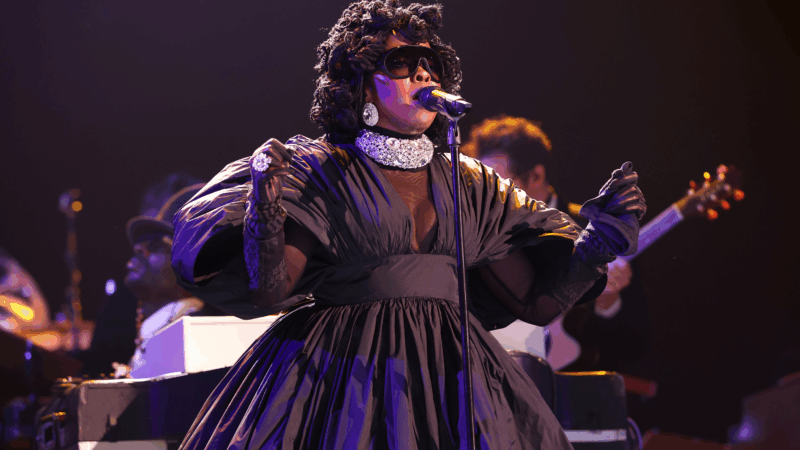Black Women Boosted Doug Jones to Victory. Now What?
They call it the sister vote. To black women in Alabama who propelled U.S. Sen. Doug Jones to victory in the Dec. 12 special election, it was a way to make a powerful statement about the need for more focus on their priorities.
Sheila Tyson, a leader in the Alabama Black Women’s Roundtable, knocked on hundreds of doors and called residents around the state to rally black female voters in December’s hotly contested race. There were other similar grassroots efforts around the state, from Mobile to Tuskegee.
Exit polls show that 98 percent of black women voted for Jones over Moore last month. Now, some Alabama black female voters say they want Jones to pay attention to issues that affect them and their families.
“We’ve got a full list,” says Tyson, a Birmingham city councilwoman who has been part of the non-partisan roundtable for several years. The Black Women’s Roundtable is a national organization focused on empowering women to address issues that build stable families. Tyson says, “it’s not as much about the political party, but about problems in our communities.” Black women want political parties and observers to take note of the power of the “sister vote.”
Tyson says their agenda includes increasing the minimum wage to $15 an hour and improving benefits for women.
“Women are often the heads of household, and many of them still do not get equal pay. When they retire, many of them are in poverty because Social Security is just not enough,” Tyson says.
Birmingham attorney Ruby Davis worked behind the scenes in the Jones campaign headquarters and she tapped into her social and professional network to get out the vote for her candidate. She traveled to Washington last Tuesday to see Jones sworn into office.
“I worked on the Jones campaign because I believed in the candidate, and I believe he will address our issues,” she says. “I want him to bridge the gap between partisan divide and get something done for all of Alabama.”
On election night, Davis says she watched election results reported on television. Slowly she realized that her candidate’s ground game had worked, and that Jones could capture a Senate seat, representing one of America’s reddest states.
In Jefferson County, the voter turnout in some predominately black boxes mirrored turnout for presidential elections. At the Bethel Baptist Church polling place in Pratt City, one of Jefferson County’s largest polling places, 1,999 votes were cast. Doug Jones received all but 26 of those votes. Roy Moore and a variety of write-in candidates picked up the remaining votes, with a total turnout of 60 percent at that precinct.
Voting for Democrats is nothing new for blacks, and particularly black women, says Angela Lewis, a UAB political scientist.
“If we look historically in presidential elections in Alabama, about 90 percent of blacks have voted for the Democrat in the general election,” Lewis says.
At Hudson School in North Birmingham, 1,248 people voted in the 2016 General Election, and 98 percent voted for Democrat Hillary Clinton.
Lewis says, numbers like this are not unusual, and “It’s largely black women who provide the stable consistency.”
Jefferson County Commissioner Sandra Little Brown agrees.
“We’ve always been the voters in the house,” Brown says. “We have always been there in our churches and in the community, registering other voters and encouraging them to go to the polls in every election.”
She says, that sometimes means arranging rides to the polls for those who may not have transportation.
“This shows that we have to be vigilant all of the time when it comes to voting,” Brown says.
Lewis, the political scientist, says the results of Alabama’s Senate election should send a message to Democrats around the country.
“You should not ignore anyone, including black women, even in a state like Alabama,” she says. “Every vote, every person counts. What about Georgia, South Carolina?”
If it had not been for the intense mobilization in Alabama, Lewis says, “we would now be talking about Roy Moore as a U.S. Senator.”
Supreme Court appears split in tax foreclosure case
At issue is whether a county can seize homeowners' residence for unpaid property taxes and sell the house at auction for less than the homeowners would get if they put their home on the market themselves.
Top House Dem wants Justice Department to explain missing Trump-related Epstein files
After NPR reporting revealed dozens of pages of Epstein files related to President Trump appear to be missing from the public record, a top House Democrat wants to know why.
ICE won’t be at polling places this year, a Trump DHS official promises
In a call with top state voting officials, a Department of Homeland Security official stated unequivocally that immigration agents would not be patrolling polling places during this year's midterms.
Cubans from US killed after speedboat opens fire on island’s troops, Havana says
Cuba says the 10 passengers on a boat that opened fire on its soldiers were armed Cubans living in the U.S. who were trying to infiltrate the island and unleash terrorism. Secretary of State Marco Rubio says the U.S. is gathering its own information.
Surgeon general nominee Means questioned about vaccines, birth control and financial conflicts
During a confirmation hearing, senators asked Dr. Casey Means about her current positions and her past statements on a range of public health issues.
Rock & Roll Hall of Fame 2026 shortlist includes Lauryn Hill, Shakira and Wu-Tang Clan
The shortlist also includes a 1990s pop diva, heavy metal pioneers and a legendary R&B singer and producer.






